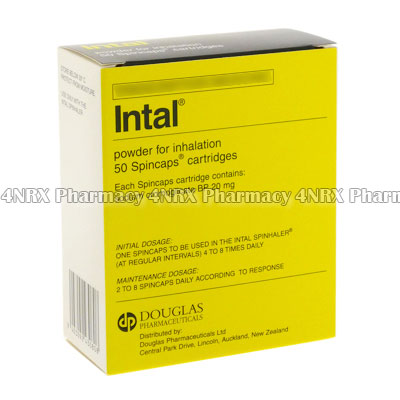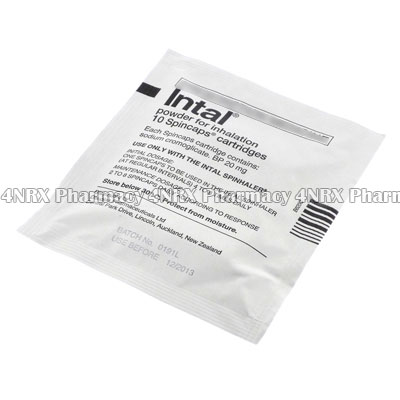 |
Home  Allergies Allergies  Intal (Sodium Cromoglycate) Intal (Sodium Cromoglycate) |
|
|||||||||
|
|
Intal (Sodium Cromoglycate)
What is Intal (Sodium Cromoglycate) used for? Intal (Sodium Cromoglycate) is an inhalable medication prescribed to prevent asthma attacks in patients suffering from asthma or chronic obstructive pulmonary disorder (COPD). It operates by stabilizing mast cells to prevent inflammation in the lungs and respiratory tract to allow easier and more comfortable breathing. It should be noted that this action is only meant to be used to prevent attacks from occurring and should not be used in an emergency. Your physician may also prescribe this medication to treat other conditions that are not listed here. How should I use Intal (Sodium Cromoglycate)? Follow your physician's instructions for using Intal (Sodium Cromoglycate) to get the most effective results from treatment. It is normally administered two to six times daily, but your individual dosage and frequency of administration will depend on your symptoms and current health condition. Open your inhaler, put your mouth over the mouthpiece, and inhale deeply while operating the inhaler. If you have any questions about using the medicine, ask your pharmacist or physician to ensure the correct application. What are the side effects of Intal (Sodium Cromoglycate)? The use of Intal (Sodium Cromoglycate) may cause side effects in some patients such as:
Tell your physician if any of these symptoms become worrying or if you experience serious side effects such as faintness, sore muscles, tremors, nausea, or diarrhea. These conditions may require immediate medical attention or adjustments to your treatment to prevent further complications from occuring. Please Note Strictly follow all instructions provided to you by your physician or pharmacist while using Intal (Sodium Cromoglycate). Optimum and safe dosage can differ based on the patient and the condition being treated. As this medication may be unsafe for certain patients, it is essential you always inform your physician if you are pregnant or breastfeeding, as well as if you have any allergies, other illnesses, or ongoing health conditions, especially liver disease, and if you are taking any other form of medication, supplements, or herbal products. Immediately seek emergency medical care if you have any allergic or hypersensitive reaction. Common signs of a reaction include hives, swelling, skin rashes, chest pains, as well as trouble breathing or swallowing. 

|
||||||||||||||||||||||